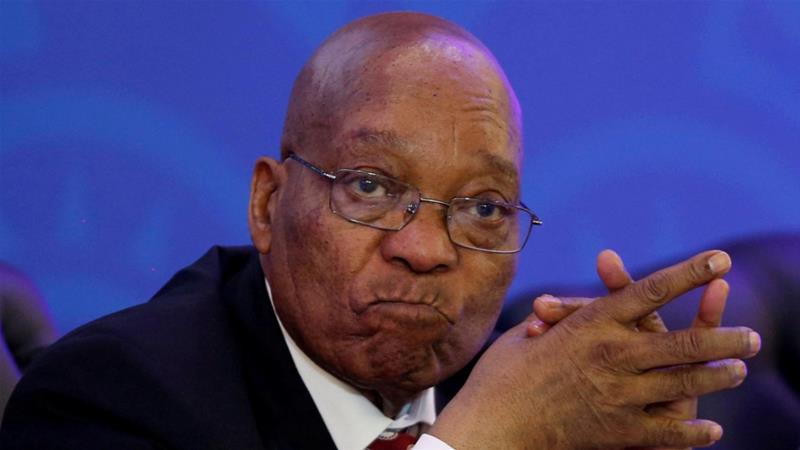South Africa's embattled President Jacob Zuma has resigned his office with immediate effect.
Â
Jacob Zuma announced his resignation in a televised address to the nation.
"I have to come to the decision to resign with immediate effect," he said late on Wednesday in Pretoria.
Zuma's resignation followed weeks of intense public pressure to step down amid longstanding corruption allegations.
The ruling African National Congress (ANC) formally asked Zuma, 75, to resign on Tuesday. He initially refused, saying he did not understand why he was being told to step down.
The party later announced plans to hold a no-confidence vote against him on Thursday in parliament.
"It is my party that placed me the representative of the people. It is my party that availed me," Zuma said in his speech from Union Buildings.
"Make no mistake, no leader should stay beyond the time the people they serve. No leader should seek an easy way out because they could face a life without the perks of political office."
Mr Zuma, a former member of the ANC's military wing in the days of apartheid, rose through the ranks of the party to become president. He led the country for more than a third of its time after apartheid.
But he leaves office with several scandals hanging over him, and with South Africa's economy in dire straits.
Corruption allegations
Zuma, who served as the country's president since 2009, joined the ANC in 1958.
He is considered one of the party stalwarts, having served for 10 years on the Robben Island prison alongside freedom fighter Nelson Mandela and living in exile before returning to South Africa in 1990.
Despite being known for being an astute political operator, Zuma's presidency was characterised by scandal and corruption allegations, making him the most controversial president since the end of apartheid.
"South Africa will look back and wonder how we allowed a president so reprehensible to last so long in office," Sizwe Mpofu-Walsh, author of Democracy and Delusion: 10 Myths in South African Politics, told Al Jazeera.
South Africa's Constitutional Court ruled last December that parliament had failed to hold Zuma accountable over the alleged use of state funds to upgrade his rural home in Nkandla.
That followed an earlier court decision in April 2016 that found Zuma had "failed to uphold, defend and respect the Constitution".
It resulted in an impeachment vote that same month, but the motion failed to pass when parliament, where the ANC holds a majority, voted 233 to 143 in Zuma's favour.
Zuma was also found to have given favour to an Indian immigrant family known as the Guptas, in what became known as the state capture scandal.
It was reported that the family wielded such influence over Zuma that they were able to decide who got appointed to the cabinet.
Zuma has always claimed his innocence and some South Africans still defend him, saying he was targeted unfairly in a system that is underpinned by corruption.
Â
primenewsghana.com





